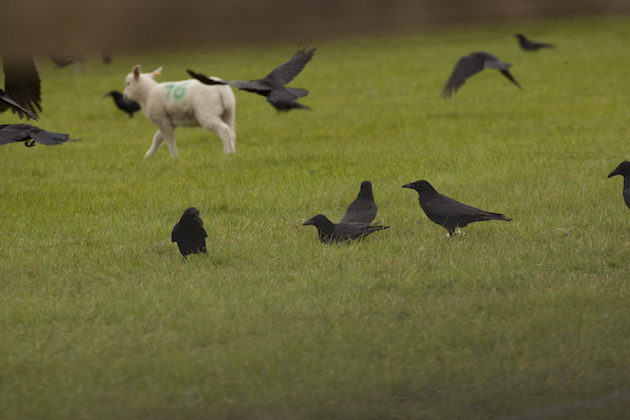Pest control – hooded crows
Hooded crows are a threat to spring lambs and a difficult pest to control, but Bruce Potts thinks they offer…
 Carrion crows among sheep and lambs on the farm
Carrion crows among sheep and lambs on the farm
The general licences that allow for the shooting of pest bird species, including crows, feral pigeons, Canada geese and lesser black-backed gulls, are to be challenged in the courts by a campaign group.
Wild Justice, a private company set up by TV presenter Chris Packham, raptor blogger Dr Ruth Tingay and former RSPB conservation director Dr Mark Avery, has announced that it is raising funds to challenge the legality of the general licences in court.
The general licences are issued annually by Natural England, Scottish Natural Heritage, Natural Resources Wales and the Department of Agriculture, Environment and Rural Affairs in Northern Ireland. They allow anyone to kill certain species of bird to protect crops and livestock, to prevent damage and disease and to protect the environment.
Announcing its intention to challenge the licences on the crowd-funding website CrowdJustice, Wild Justice said it “believes this system is unlawful despite the fact that it has been in existence for decades and has ‘authorised’ the casual killing of millions of birds”. The statement continues: “We contend that it is the licensing authority’s (Natural England’s) legal responsibility to satisfy itself that killing these birds is an appropriate last resort. However, in the general licences issued on 1 January 2019, Natural England ducks its responsibility and instead places the decision-making completely in the hands of the general licence user.”
Gamekeepers and pest controllers responded to
the news of the challenge with a mixture of anger
and derision.
Commenting on the potential impact of the action on vulnerable bird populations, one experienced land manager wrote: “If they are trying to make a splash it worked but at what cost to the taxpayer and the environment remains to be seen. Will the last curlew please turn out the lights.”
Hooded crows are a threat to spring lambs and a difficult pest to control, but Bruce Potts thinks they offer…
On the same day the challenge to the general licences was announced, the High Court ruled against Dr Avery and the RSPB in their challenge to Natural England’s brood management scheme for hen harriers. Dr Avery was represented by law firm Leigh Day, which controversially brought more than 200 cases in the High Court relating to the conduct of British soldiers in Iraq and which is acting as legal adviser to Wild Justice.
Get the latest news delivered direct to your door
Discover the ultimate companion for field sports enthusiasts with Shooting Times & Country Magazine, the UK’s leading weekly publication that has been at the forefront of shooting culture since 1882. Subscribers gain access to expert tips, comprehensive gear reviews, seasonal advice and a vibrant community of like-minded shooters.
Save on shop price when you subscribe with weekly issues featuring in-depth articles on gundog training, exclusive member offers and access to the digital back issue library. A Shooting Times & Country subscription is more than a magazine, don’t just read about the countryside; immerse yourself in its most authoritative and engaging publication.

